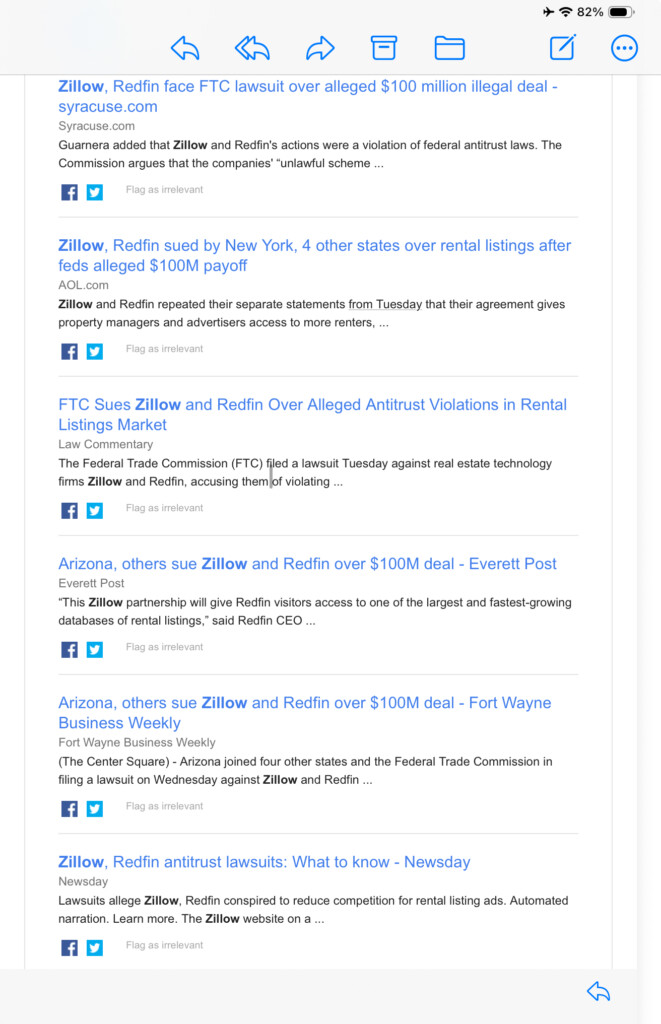Zillow has always been polarizing in the real estate industry. Agents and brokers have complained about advertising costs, referral fees, and shifting policies for years. But one thing Zillow has successfully protected is its direct relationship with consumers. Buyers and sellers may not have loved every aspect of the platform, but they trusted it.
That consumer trust is now being tested.
 Lawsuits are reshaping perception
Lawsuits are reshaping perception
Zillow faces a stack of lawsuits on multiple fronts:
- State Attorneys General are investigating and suing over rental advertising practices deemed misleading.
- Compass is in court, alleging Zillow engaged in anticompetitive tactics.
- CoStar has filed a high-stakes copyright lawsuit.
- Most damaging of all, class action attorneys are pressing an antitrust case that reveals how Zillow’s referral program functions.
Consumers are learning through national media coverage that when they click to connect with an agent on Zillow, they’re entering into an arrangement they never explicitly agreed to: Zillow collects up to 40 percent of the commission for that transaction. The obligation extends beyond the initial purchase—covering any transaction with that agent for two years. Agents participating in the program must also promote Zillow Home Loans.
The new narrative in consumer media
For years, Zillow has been covered by consumer outlets as an innovator that reshaped the home search experience. Today, the coverage looks very different. Article after article portrays Zillow not as a helpful guide, but as a gatekeeper profiting from hidden referral fees. Consumer journalists are hammering away at questions of transparency: Do homebuyers know the financial relationships behind the agent recommendation? Do they realize they’re indirectly paying Zillow when they work with one of these partner agents?
Why this matters
Trust is Zillow’s most valuable asset. It’s what allowed them to become a household name and the starting point for millions of real estate journeys. If consumers begin to feel the platform is steering them into costly, undisclosed arrangements, that trust frays. And once lost, it’s difficult to rebuild.
For real estate professionals, the takeaway is clear: the reputational risk Zillow faces is not limited to Wall Street or the courts. It plays out in living rooms, at kitchen tables, and across media headlines. If consumer trust erodes further, Zillow’s competitive position could weaken in ways far greater than any single lawsuit could dictate.




